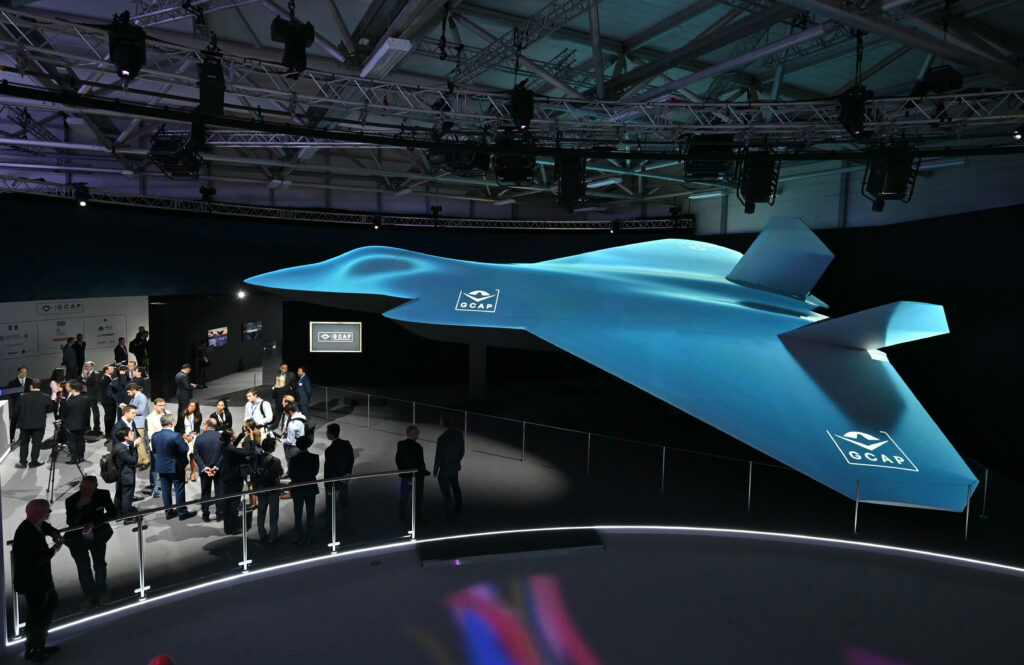The UK, Italy and Japan on Friday launched a joint venture to develop a supersonic next-generation fighter jet by 2035, replacing the Eurofighter Typhoon.Britain’s BAE Systems, Italy’s Leonardo and Japan Aircraft Industrial Enhancement Co Ltd (JAIEC) will each hold a 33.3 percent share in the new venture, “marking a pivotal moment for the international aerospace and defence industry,” they announced in a press release.JAIEC is a firm jointly funded by Mitsubishi Heavy Industries (MHI) and the Society of Japanese Aerospace Companies.”Today’s agreement is a culmination of many months working together with our industry partners and is testament to the hard work of everyone involved in this strategically important programme,” said Charles Woodburn, BAE Systems Chief Executive.The venture will “bring together the significant strengths and expertise of the companies involved to create an innovative organisation that will lead the way in developing a next generation combat air system, creating long-term, high value and skilled jobs across the partner nations for decades to come,” he added.The three partners have agreed to form a new company under the Global Combat Air Programme (GCAP), a multinational initiative established by the UK, Japan and Italy in 2022 to develop a sixth-generation stealthfighter to replace the Typhoon and Japanese F-2.The joint venture is expected to be established by the middle of 2025 and will undertake the design and development of the GCAP aircraft.It will subcontract the manufacturing and final assembly of the aircraft to BAE Systems, Leonardo, MHI and the wider supply chain.The aircraft is due to enter service in 2035, ahead of the competing European project FCAS — led by Paris, Berlin and Madrid — and is expected to be in service until 2070. – China, Russia threats -The new company will be headquartered in the UK and its first CEO, whose name has not been announced, will be Italian. “The way might not always be simple and straightforward. However, I believe that through continuing the strong spirit of trilateral cooperation and collaboration… we will not only deliver the GCAP on time but also at a level that exceeds all of our expectations,” said JAIEC president Kimito Nakae.The Italian defence ministry has already allocated 8.8 billion euros ($9.2 billion) to the program, Roberto Cingolani, the CEO of Leonardo, said in November, although the total budget of the project has yet to be revealed. Italy’s Defence Minister Guido Crosetto hailed the announcement as an “important step” and “a remarkable example of the strong international cooperation between our nations”.GCAP aims to counter the threats posed by Russia and China and will merge two different aircraft program — the UK and Italy’s “Tempest” and Japan’s “F-X”.The objective is to develop a twin-engine stealth aircraft that could be operated with or without a crew, would boast features such as laser-directed weapons and a virtual cockpit and would be much harder to detect using radar and infrared.New technologies being explored for Tempest include the integration of AI and augmented reality and the ability to conduct missions alongside drones.Visiting the Farnborough Air Show in July, where a model of the aircraft was unveiled, British Prime Minister Keir Starmer stressed “just how important a program this is” for the country. But Mike Schoellhorn, the CEO of Airbus Defence and Space, said in July that the competition between GCAP and FCAS was “not logical”. Cingolani has not ruled out a possible rapprochement. “I’m not saying merging, maybe this is too much, but for sure some collaboration. It’s too early to say, we’re just at the beginning,” he told AFP.
